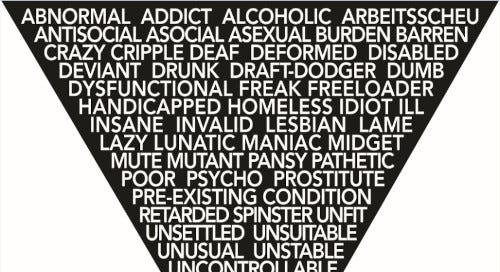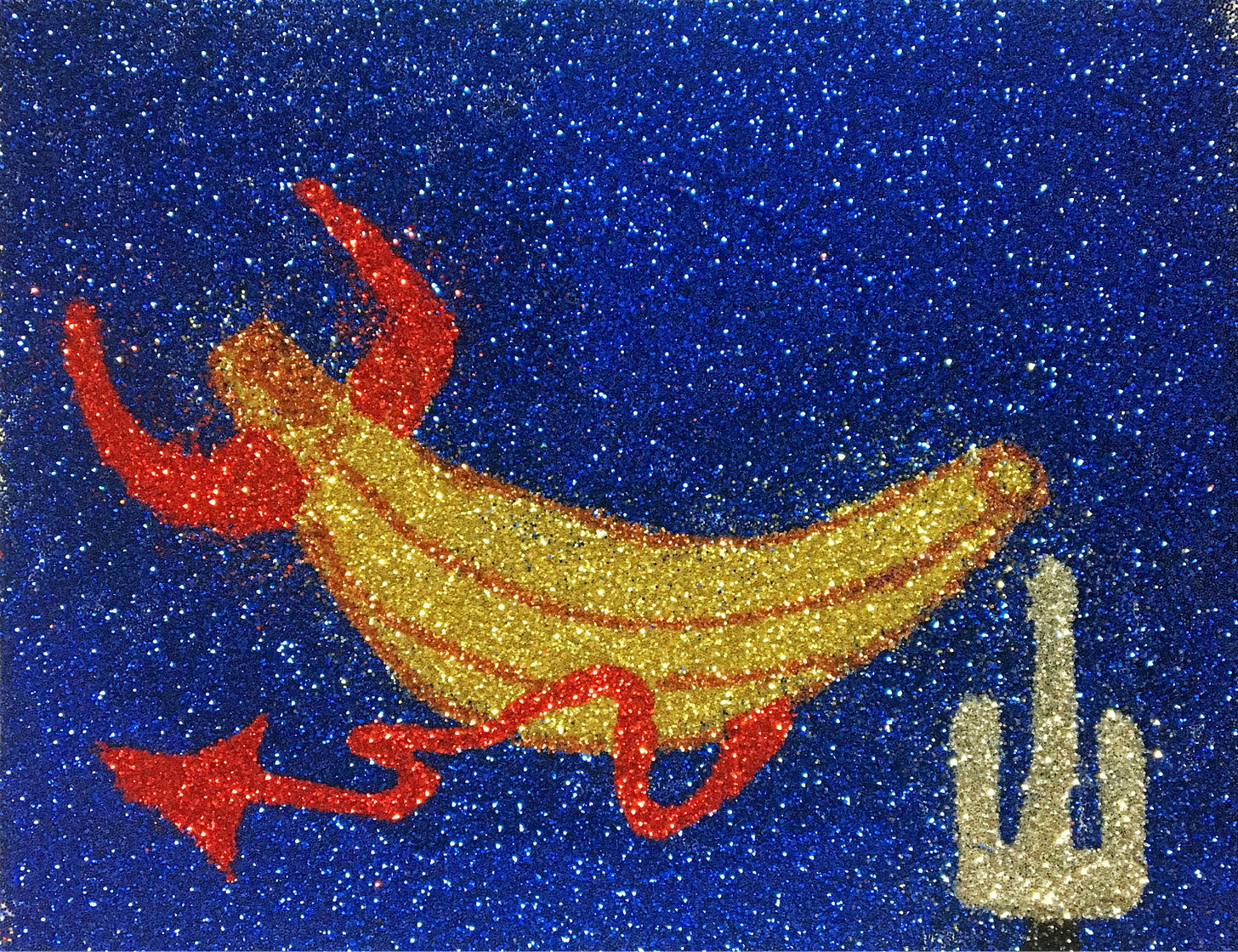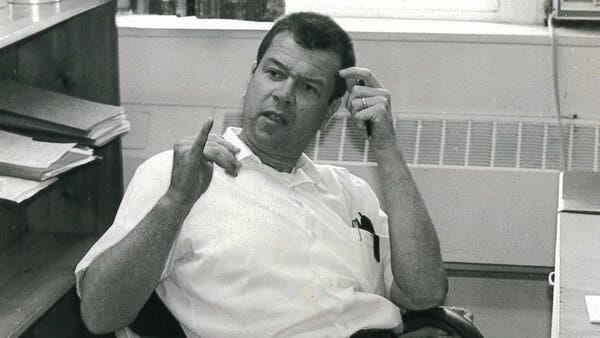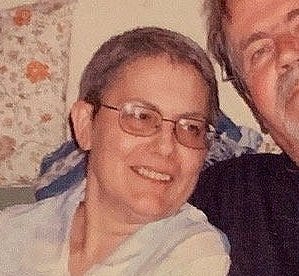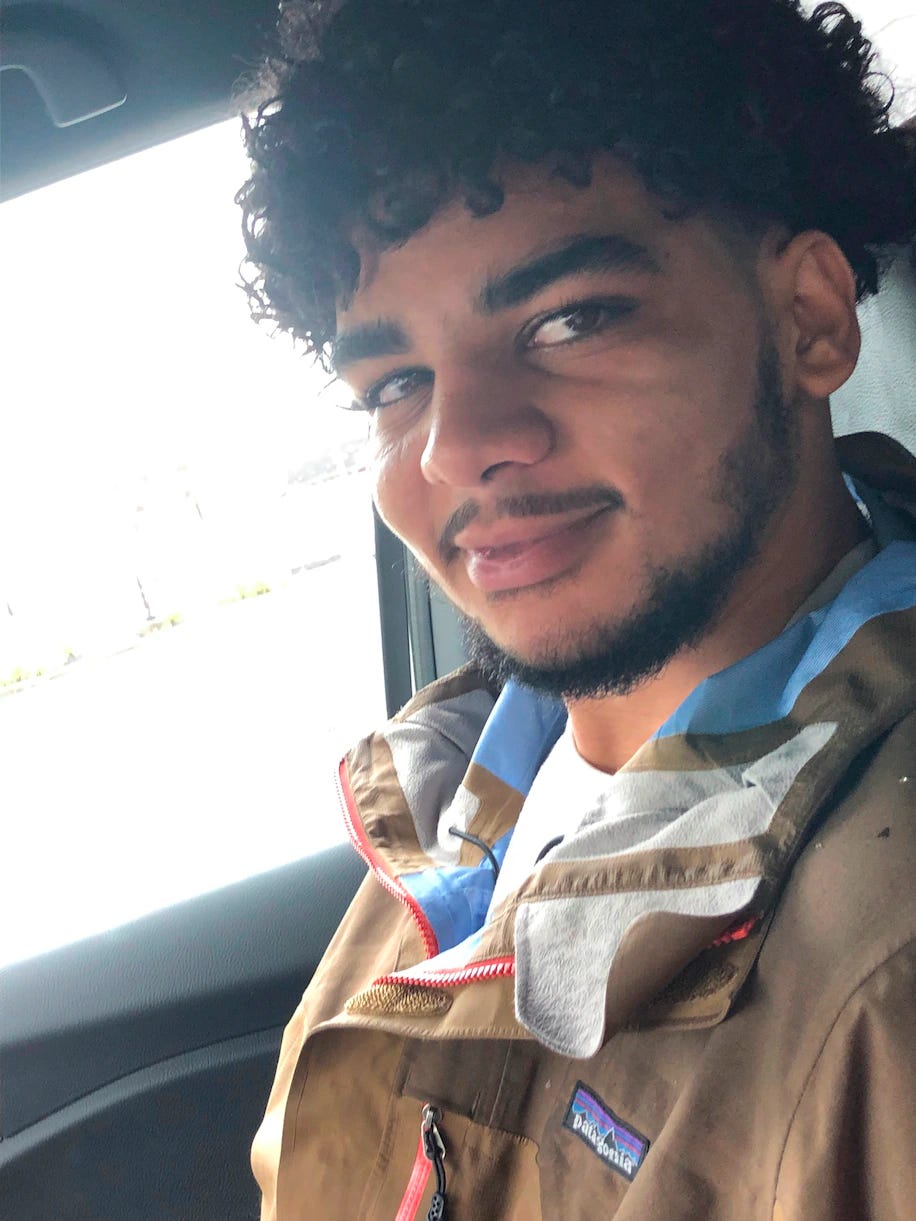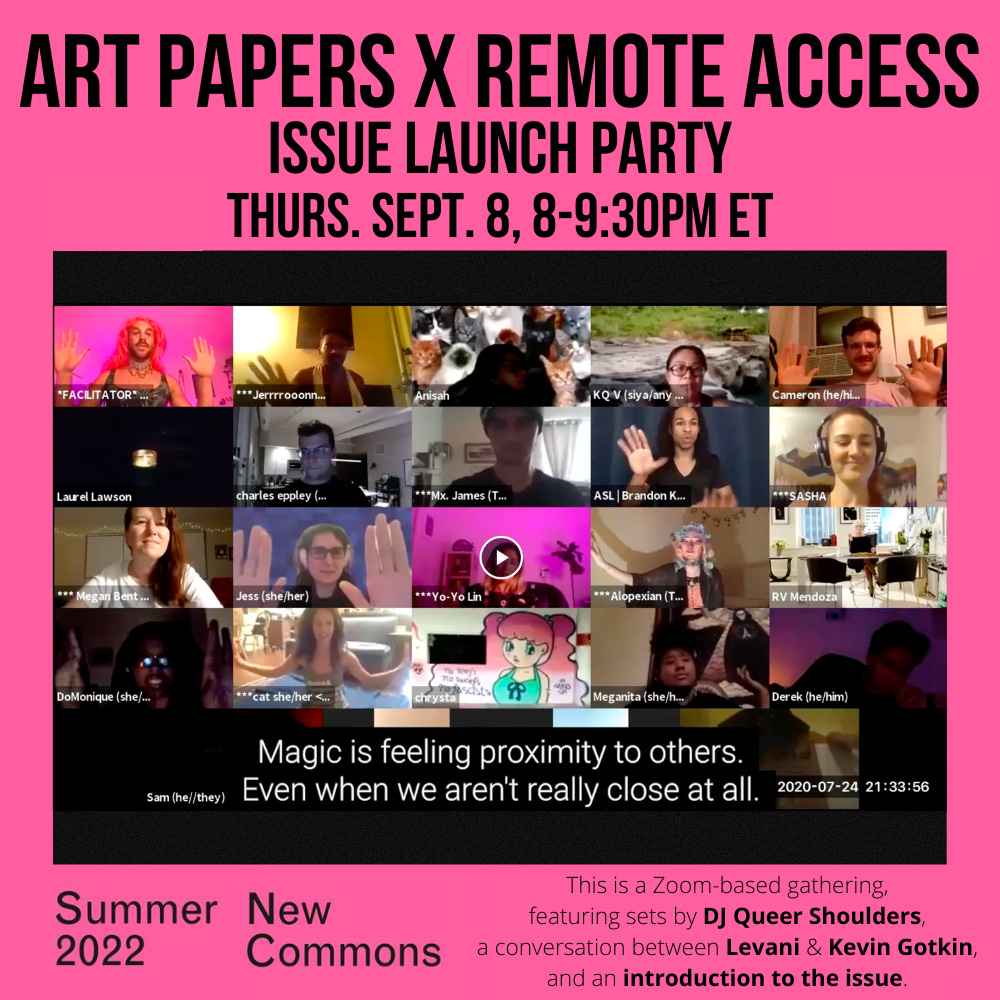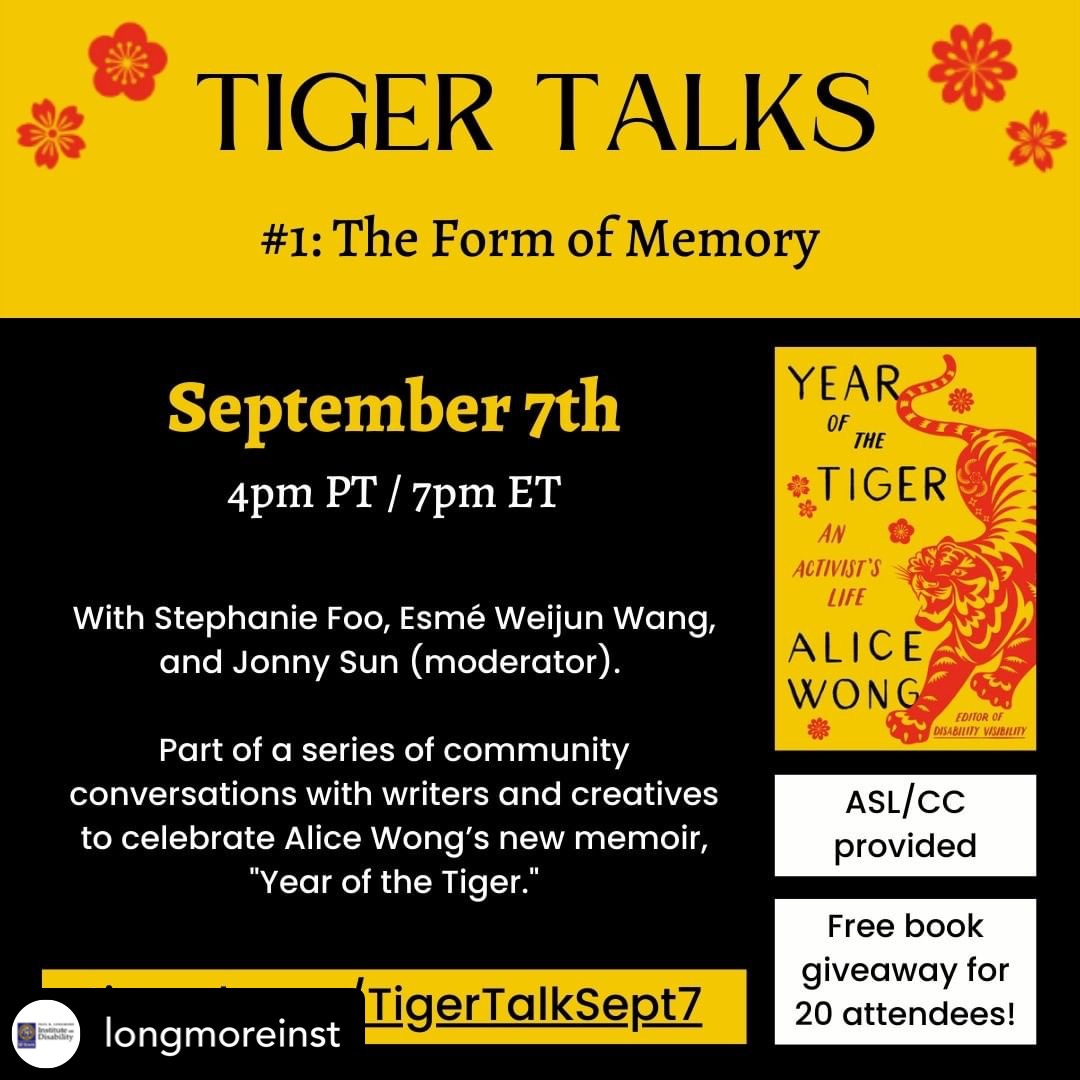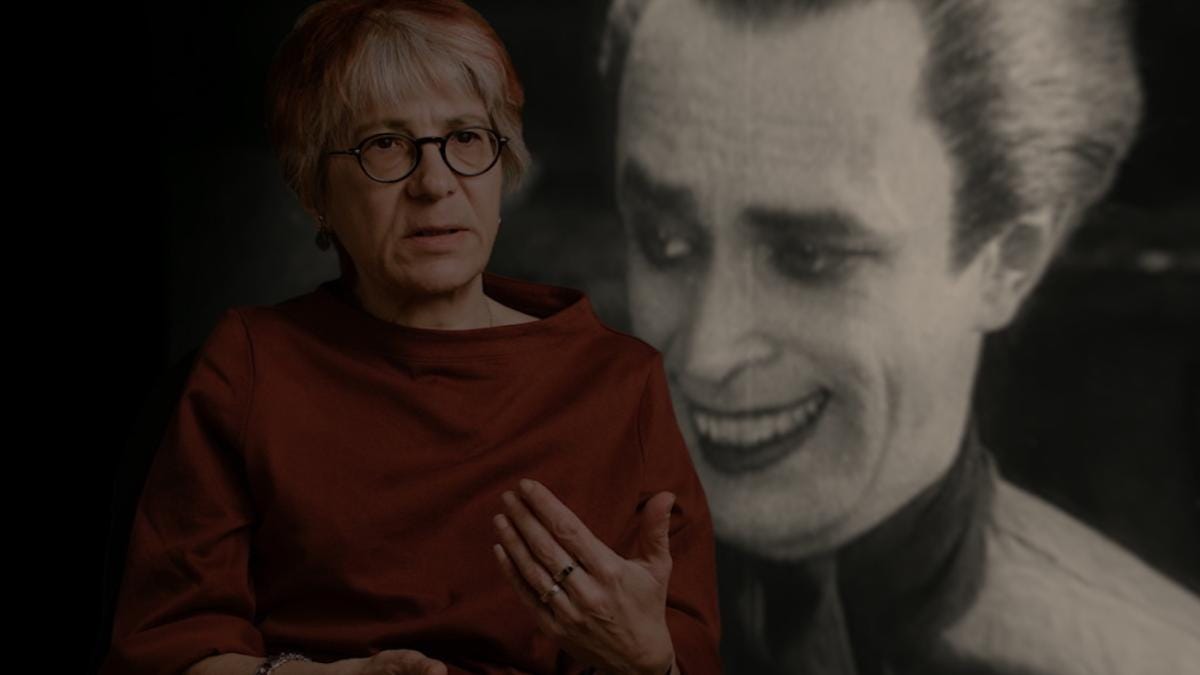Crip News v.48
Labor Day in the U.S.
There are many ways that disability and labor define each other. So it makes sense if this holiday feels fraught.
Some may remember the annual Jerry Lewis Labor Day Telethon that was a major engine of media representation and the charity model of disability. For others, rage bubbles up that the AbilityOne program, which allows disabled workers to be paid subminimum wages in dangerous sheltered workshops, has not been abolished. Still others might be wondering where to fit the right not to work into celebrations of unions’ collective power.
When as many as 4 million people in the U.S. with long COVID can’t work, when the care crisis makes workers the collateral damage of refusals to dismantle ableism, when hiring practices are often steeped in ableism, it’s hard to feel the “happy” in “Happy Labor Day.”
Still, wishing you all the rest life you can get today.
And if you’re brand new to the newsletter - hello, students reading for new courses! - welcome!
-kevin
NEWS
Arts Council England
The publicly funded arts organization has refused to release internal documents from its Race and Disability Advisory Group. Journalists and organizers are seeking details that could explain the lack of the Council’s progress on more equitable distribution of resources to disabled people of colour. If released, the group’s documents would offer a rare look into the supposedly frank conversations about racism and ableism that occur within large institutions.
New Works
Queering the Crip, Cripping the Queer, an exhibition on “queer/disability history, activism, and culture,” is open at the Schwules Museum in Berlin through January 30th, 2023. It features the work of over 20 international contemporary artists.
Moon Landing is an NFT exhibition by the disabled artists of Chicago-based studio Project Onward.
Netflix is partnering with RespectAbility to launch the Children’s Content Lab for Disabled TV Creators.
Getty Images and Verizon have announced the winners of their “$40,000 creative grant focused on sharing the voices, experiences and stories of disability communities”: Megan E. Doherty, Mia Boccella, Tuija Marander, Christian Tasso, and Anna Spindelndreier.
Rest in Power
So many disabled kin have joined the ancestors recently.
Carl Croneberg helped write the first comprehensive dictionary of ASL. His work built the foundation for how we understand Deaf culture.
In Canada, the expansion of medical euthanasia means disabled people are receiving more support to die than to change the systems that could allow for a dignified life. Margaret Bristow’s story is one among many, a scale of loss that is difficult to process.
In the U.S., the high price of insulin is stealing lives every day. Medical rationing is creating entire categories of unknown disabled deaths.
Police terror, and the ableism that underlies the anti-Blackness that fuels it, endures. Last week, Ohio police killed Donovan Lewis in his bed.
Rest in peace and power.
EVENTS
Art Papers x REMOTE ACCESS
Join Art Papers and the REMOTE ACCESS party collective to celebrate the launch of ART PAPERS Summer 2022 on Thursday, September 8, 8:00–9:30 pm Eastern Time. This is a Zoom-based gathering, featuring sets by DJ Queer Shoulders, a conversation between Levani & Kevin Gotkin, and an introduction to the issue.
In their essay from this issue, and we were dancing, danilo machado considers “living tools for sharing many kinds of space” used in the disability-centric REMOTE ACCESS series. This ongoing series of parties models and extends ART PAPERS issue’s theme of The New Commons.
The event will feature an access ecology that includes ASL song-signing, captions, audio description, sound description, and access doula-ing.
Alice Wong’s Tiger Talks
Alice Wong has partnered with the Paul K. Longmore Institute on Disability and Sandy Ho of the Disability and Intersectionality Summit for TIGER TALKS, a series of online book events this fall. Books will be given away to 20 attendees at each event!
Code of the Freaks Screening (Chicago)
CODE OF THE FREAKS presents a radical reframing of the use of disabled characters in film. Using hundreds of clips spanning over 100 years of moviemaking, and a cast of disabled artists, scholars and activists, it’s a scorching critique of some of Hollywood’s most beloved characters. This revelatory documentary investigates the power of movie imagery to shape the beliefs and behaviors of the general public toward disabled people, and of disabled people toward themselves.
Fri. Sep 9 @ 6:30 pm, Sat. Sep 10 @ 2:00 pm, Sun. Sep 11 @ 2:00 pm
Director in attendance for post-screening Q&A on Friday, September 9.


